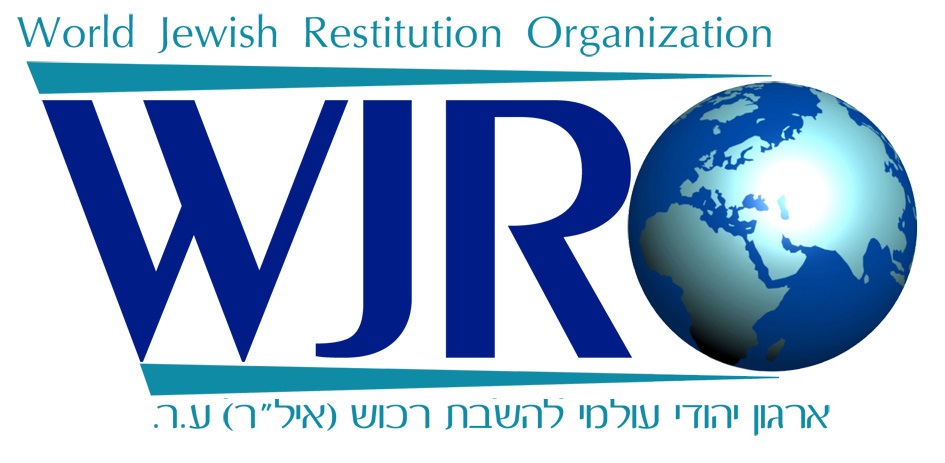
THE WORLD JEWISH RESTITUTION ORGANIZATION (WJRO) WELCOMES NEW REPORT COMMISSIONED BY BELGIAN PARLIAMENT WHICH FINDS THAT THE NATIONAL RAILWAY COMPANY OF BELGIUM (SNCB) COOPERATED WITH GERMAN AUTHORITIES IN MASS DEPORTATION OF JEWS DURING WWII
Findings underscore that the SNCB received German payments of more than 50 million Belgian francs for the deportation of over 25,000 Jews, Roma, resistance fighters & forced laborers on 28 convoys between 1942 & 1944
New York, NY (December 15, 2023): The World Jewish Restitution Organization (WJRO) welcomes a new report commissioned by the Belgian Parliament and presented to Belgium’s Senate on December 8 regarding the role of the National Railway Company of Belgium (NMBS/SNCB) in the deportation of over 25,000 Jews, Roma, resistance fighters and forced laborers during the Holocaust. Notably, the report concludes that the SNCB received payments of more than 50 million Belgian francs from Germany for the deportation. The report also makes clear that less than five percent survived – only 1,195 individuals returned alive out of the 25,843 who were transported. The report was written by Nico Wouters, head of the Center for Studies and Documentation on War and Contemporary Societies at CegeSoma – Archives de the state. The findings are the result of an independent inquiry set up in 2022 and co-financed by Belgium’s Mobility Minister, Georges Gilkinet, and Senate President, Stéphanie D’Hose.
“We welcome the report commissioned by the Belgian Parliament shedding light on the role of SNCB in deporting Jews and receiving German payments during the Holocaust, and appreciate the response by Belgian officials to the facts uncovered. This report is of tremendous historical significance, setting the record straight on the railway company’s involvement and emphasizing the need for justice. In this time of flourishing antisemitism, this moment calls for a real understanding of history. The findings underscore the importance of acknowledging past wrongs and taking decisive action to address historical injustices. We urge the responsible authorities to ensure accountability,” said Gideon Taylor, President, World Jewish Restitution Organization (WJRO).
“We cannot minimize the importance of this study,” said Senate President Stephanie D’Hose. “For the first time, we have a detailed overview of the role that Belgium, via SNCB, played in transporting people to concentration camps during the Second World War. This role turns out to be important and it is a shocking discovery. Within the Senate, we are already working on organizing a conference so that these discoveries can be widely discussed and not lost.”
“Out of respect for the victims of deportations and their descendants, I am going to propose the creation of a group of wise people, who could meet in the Senate and who would be responsible in the coming year for thinking about the form that this follow-up could take place,” reacted Minister Gilkinet in a statement.
In 2012, the managing director of SNCB Holding acknowledged the public company’s role in deportations, calling it “a black page in the history of the company.” However, recognizing the need for broader contextualization and exploration of potential payments, further research was conducted autonomously by Nico Wouters. His efforts aimed at providing a more comprehensive history of SNCB under the Occupation, compensating for the lack of sources and archives. The study reveals previously unknown aspects of this chapter of history. Following its release, calls for government measures and proposals for conferences and follow-up actions were made, underscoring the importance of addressing historical complexities with sensitivity and finesse.
Background:
At the outset of World War II, the Jewish community of Belgium numbered more than 100,000. Today, the total Jewish population in Belgium is approximately 30,000, with a high concentration in Brussels and Antwerp.
Despite initial closure during the German invasion, Belgian railways resumed operations within a month of the Occupation, collaborating with German authorities to maintain control over transport, food supplies, and the transportation of military supplies. The normalization of such collaboration extended to the use of deportation trains, reflecting a “de facto impossibility of refusal” for the rail company’s Board.
On April 4, 2019, the Belgian Parliament unanimously passed a resolution requesting the federal government to open an independent investigation into the role of the National Railway Company of Belgium (NMBS/SNCB) in deporting over 25,000 Jews and more than 350 Roma on 28 convoys from Mechelen, Belgium, to extermination camps.
CegeSoma began conducting a study on the SNCB in August 2022; this investigative report was presented to the Belgian Senate on December 8, 2023.
# # #
For media inquiries please contact pr@wjro.org.il




